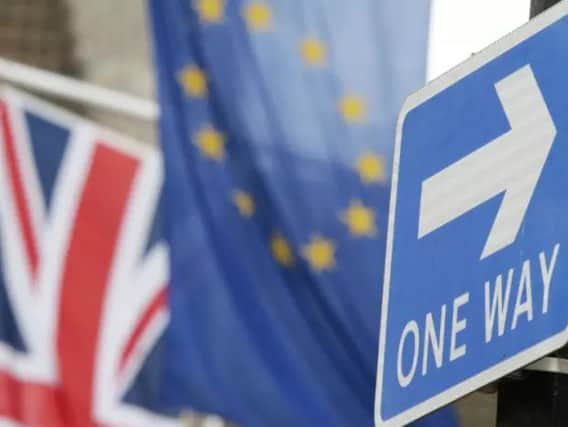Dr Jonathan Gibbs: Can't stand the other side of a debate? Put yourself in their shoes


Part of the reason for that is the binary nature of some of the issues we have been facing – Brexit being the most obvious.
There was only one choice to be made – In or Out, Leave or Remain – and the whole nation felt incredibly divided as a result of the referendum in June 2016, and in many ways still does.
Advertisement
Hide AdAdvertisement
Hide AdBut I think it’s about more than that. In the General Election, it was Theresa May versus Jeremy Corbyn, just as it had been Donald Trump versus Hillary Clinton in the USA the year before – and both elections were highly polarised and personalised, with an unparalleled level of vitriol and abuse being thrown around in both campaigns.
One problem with this approach to politics is that it reduces everything to soundbites and personalities, and makes it impossible to have a nuanced and constructive discussion about the big issues facing our nation and our world.
Questions like what are we going to do about the future of health and social care given our ageing population? Or how are we going to equip our young people for life in a fast-changing world when we have no idea what kind of jobs they might fill in 20 years’ time?
It is so hard to have a sensible debate about these things because everything has been reduced to yah-boo politics, both between and within our major political parties.
Advertisement
Hide AdAdvertisement
Hide AdOne reason behind this is that our political views have never been just about reasoned argument. They are in great part to do with our whole view of the world, and that tends to be
something much more about what we feel in our guts than what we think in our heads. There are great fault lines in the way we tend to see the world, and in our society these views tend to cluster around two poles.
Put at its simplest, there are those who think that government should play a more major role in shaping society and ensuring equity within it, and there are those who think that things are better when people are encouraged to take greater responsibility for their own lives and communities. Now, of course, neither of these approaches can give us everything we need, and both have something important to contribute at one time or another.
For instance, next year we will celebrate the 70th anniversary of the founding of the National Health Service, which does so much for us all – but at the same time it is quite clear that the NHS cannot solve all our problems and that individuals, families and communities also need to take greater responsibility for their own health and well-being. It is not a matter of either/or, but of both/and, as with so many things.
Advertisement
Hide AdAdvertisement
Hide AdSo what are we going to do about this situation and what if anything does the Christian faith have to offer in the face of this dilemma?
Well, the heart of Christmas is of course about God putting himself in our shoes. God’s son became a human being, born of Mary in a stable on the outskirts of a small town in an occupied land. He took on our flesh and learned what it was like to live as a human being, from the inside. He spent time with the poor and the outcast, and he challenged his followers to put them at the centre of their concerns, just as if they were welcoming and caring for him.
And that is something like what we need to do if we are to break down some of the polarisation that has grown up in our nation over the last few years. We need to step outside the familiar and outside our comfort zone and start to get to know people who are different from us and who don’t think and view the world as we do.
Jesus Christ challenges us to put ourselves in other people’s shoes, and to spend some time walking alongside them as well. Brexiteers need to understand how Remainers feel and why they think as they do – and the other way round. Corbynistas needs to try to see the world from the point of view of Tory voters – and vice versa – rather than hurling insults and worse at each other across the political divide.
Advertisement
Hide AdAdvertisement
Hide AdAnd in the end this is not just about arguments over what policies governments should follow and how they will affect the economy. Those arguments will never be resolved anyway because they involve far too many uncertainties. No, rather this is about recognising that we have very different views of the world which are based on our hopes and our fears for ourselves, our children and our grandchildren.
The message of Christmas challenges us to put ourselves into other people’s shoes – trying to see the world as they do, and maybe as a result changing the way we think and speak and behave towards those with whom we differ.
The Rt Rev Dr Jonathan Gibbs is Bishop of Huddersfield.